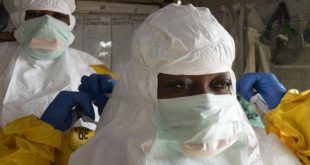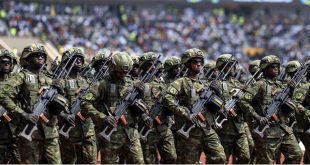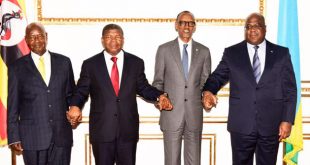
Statement of the Prosecutor of the International Criminal Court, Fatou Bensouda, at the opening of Trial in the case against Dominic Ongwen.
Honourable Judges,
This trial is about violence and misery that blighted the lives of millions of people living in Northern Uganda. Ordinary civilians, who simply wanted to be allowed to live their lives in peace, could no longer live in the villages in which they had been born and raised. Violent attacks on civilian targets by an armed group calling itself the “Lord’s Resistance Army”, or “LRA”, had resulted in those ordinary people being forced into camps for internally displaced persons (“IDPs”), and often reduced to dependency on international food aid. These camps were themselves subject to regular and terrifying attacks.
According to the United Nations, by the middle of 2005, well over a million people in the Gulu, Kitgum and Pader districts of the Acholi sub-region were registered as living in IDP camps. Meanwhile in the Apac and Lira districts of the Lango sub-region, there were camps holding almost half a million registered inhabitants. And in the Katakwi, Soroti, Kumi and Kaberamaido districts of the Teso sub-region, over 150,000 people were similarly displaced.
When these camps were attacked by the LRA, the attackers murdered residents, burned their homes, and enslaved survivors who were made to carry away domestic animals, food, clothes, money and other basic necessities which the inhabitants needed to survive. Children were abducted on a more permanent basis to be conscripted into the ranks of the attackers as child soldiers and forced to act as sex slaves.
In the course of this trial, the Court will hear about four particular attacks, which took place between October 2003 and June 2004. These attacks took place at Pajule, Odek, Lukodi and Abok. A conservative estimate of their combined population at the time of the attacks was about 35,000 people. Approximately 4,000 individuals have made applications to be registered in these proceedings as victims of these four attacks.
These locations form a rough triangle. Pajule is in Pader district. Odek and Lukodi in Gulu district. Abok is just over the boundary, in Oyam district of Lango. They have been selected because they are attacks about which the Prosecution has been able to find a significant and coherent body of evidence which demonstrates what happened in detail and which links them to Mr Dominic Ongwen, the accused in this case.
That evidence comes, for the most part, in three varieties. Firstly, the Prosecution relies upon accounts given by the victims of these attacks. Secondly, the Prosecution will call former LRA fighters to give evidence about what they did and who ordered them to do it. Lastly, and perhaps most revealingly of all, the Prosecution will be able to put before the Court sound recordings and other reliable records of the radio communications passing between LRA commanders at the time these attacks took place. That evidence will clearly demonstrate that these four attacks at Pajule, Odek, Lukodi and Abok were terrifying.
The images now on the screen show the physical effects of one of these attacks, on the camp at Lukodi. I must warn that some of these images are extremely disturbing.
Large numbers of the civilian inhabitants of these camps were killed and wounded; these were innocent people who had no interest in the violent conflict which was taking place in Northern Uganda. Some were brutally tortured in various cruel ways. Hundreds of them were abducted and forced to carry away the goods which had been pillaged. If they could not walk fast enough, they were beaten and killed. Nursing mothers, whose babies slowed their progress or who simply cried too loudly, watched as their babies were callously killed or thrown into the bush and left behind.
Pillaging may sound a lesser crime by comparison with others committed during these attacks. But it is not. The victims of this crime were living on a knife-edge. Items such as domestic animals, cooking pots, clothing, and small amounts of food and cash were the difference between surviving and perishing. For the LRA, the arithmetic was simple: they had the guns, so they could pillage the goods, whatever the consequences were for the victims.
 The Independent Uganda: You get the Truth we Pay the Price
The Independent Uganda: You get the Truth we Pay the Price


